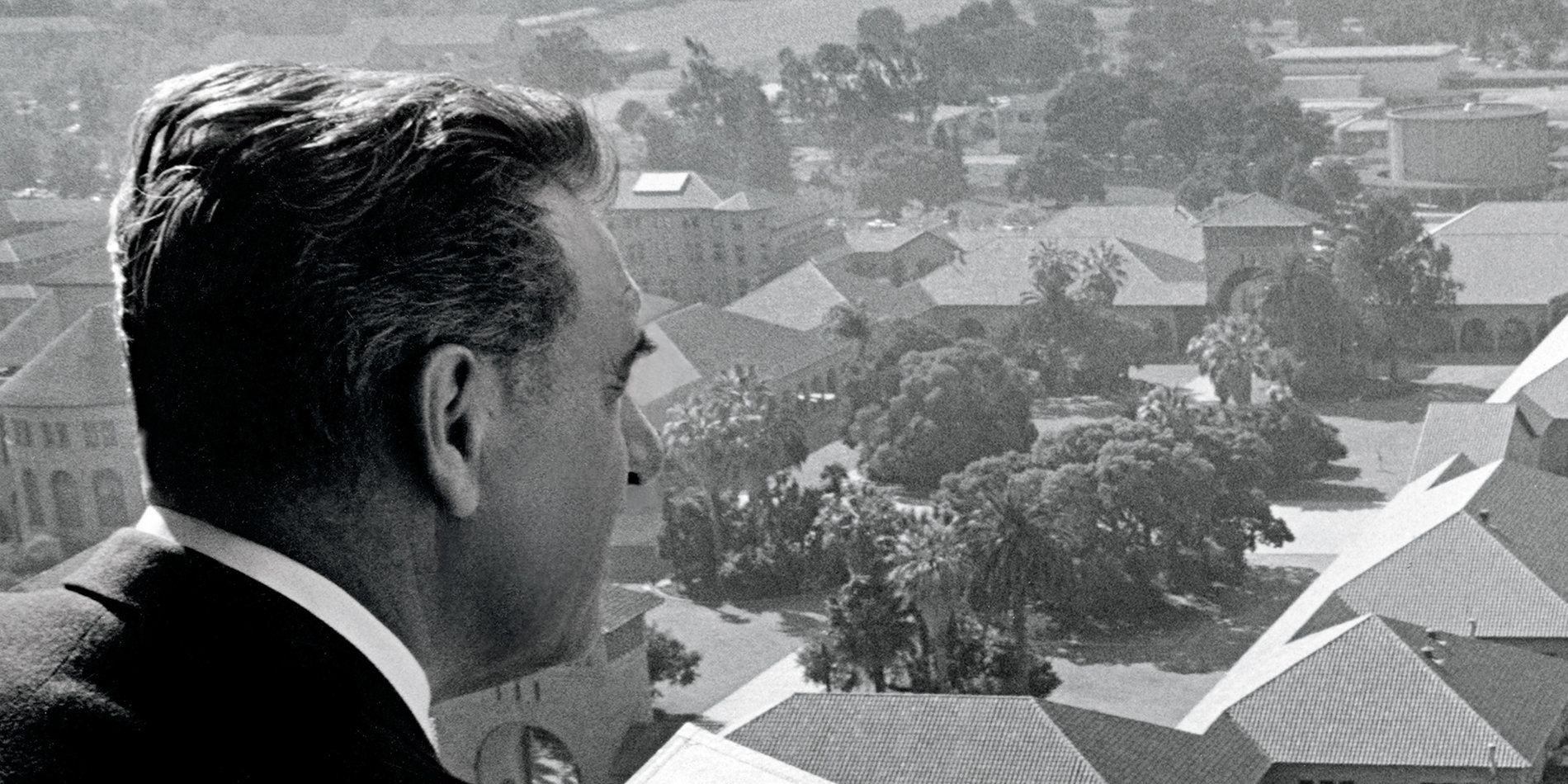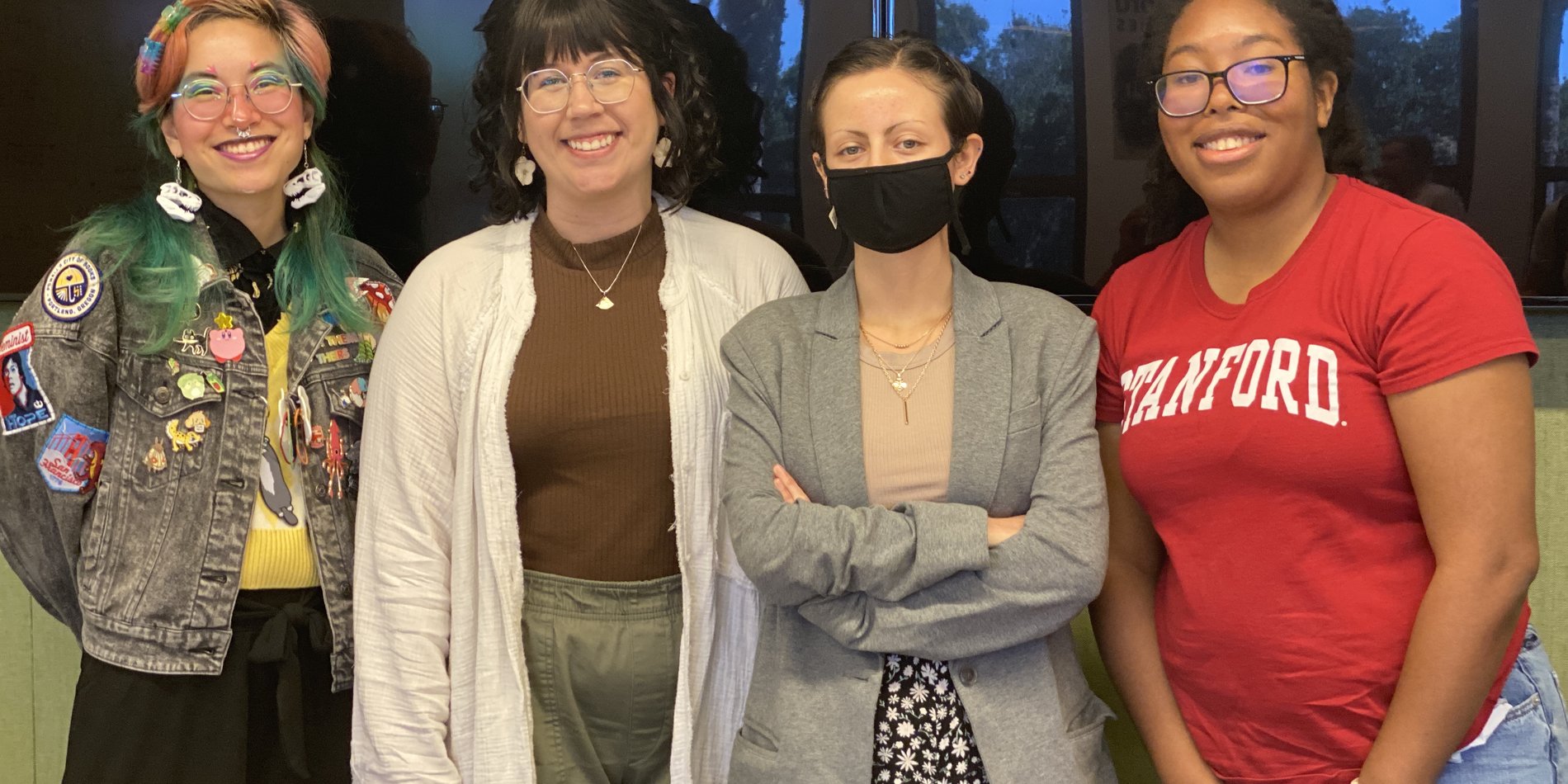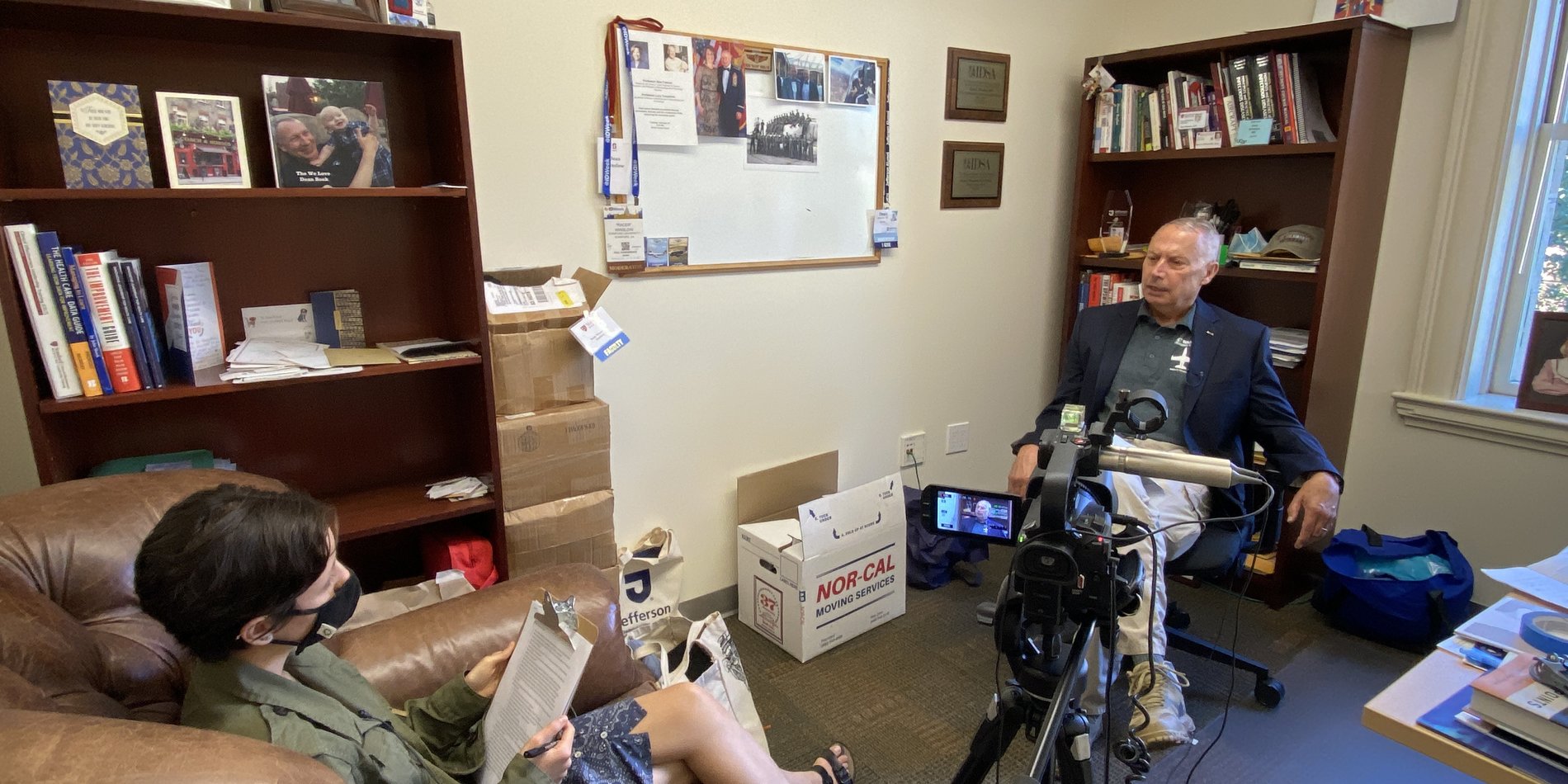Stanford Historical Society elects new board members
The Stanford Historical Society (SHS) members enthusiastically elected five new members to the society’s Board of Directors on May 13, 2021.
The new board members are Bernadine Chuck Fong, Margo Horn, Bev Kiltz, Katie Shoven and Robert "Bob" Siegel. They will start their three-year term on July 1 and will be eligible to serve another three years after completing the first term. In addition to serving on the Historical Society board with 19 continuing directors, each new board member will also serve on at least one of the eight SHS committees that carry out much of the work of the Society
Bernadine Chuck Fong directs several leadership initiatives for VPGE (Vice Provost for Graduate Education) and SIHER (Stanford Institute for Higher Education Research), and leads VPGE’s Preparing Future Professors shadowing program for PhD students and postdocs. Previously, she served as the Senior Managing Partner for the Carnegie Foundation for the Advancement of Teaching. At the Foundation, she established a major national initiative designed to increase the success rates of community college developmental math students reaching and completing college level mathematics.
Prior to Carnegie Fong served as president of Foothill College for 12 years. She began her career at Foothill as a psychology and child development professor. She has authored two textbooks in these fields. Under her leadership, Foothill became one of the first campuses in the country to offer online credit courses via the Internet in 1995 and was also consistently ranked number one among California's 110 community colleges in the percentage of students who successfully complete either their transfer or their basic skills programs. It also consistently had the highest number of transfer students to Stanford. She has served on the Board of Trustees of Stanford University and was vice-chair of the University’s Board of Trustees Minority Alumni Relations Task Force. She has also served on the boards for the Lucile Packard Children's Hospital, Stanford Healthcare Alliance, John W. Gardener Center for Youth and Communities, Silicon Valley Community Foundation, Menlo College, American Association of Community Colleges, and a number of other educational and non-profit boards. She is a fellow of the American Council on Education and the American Leadership Forum of Silicon Valley. She is also the recipient of the Stanford Medal for Distinguished Service to Stanford. Bernadine Chuck Fong was born and raised in Palo Alto and received her B.A., M.A., and Ph.D. from Stanford University. Her father was also a three-degree Stanford alumnus.
Margo Horn began teaching in the Stanford Department of History in 1985. She is a US social historian, specializing in the history of women and the history of medicine. Horn has a longstanding fascination with the history of madness and psychiatry, and is the author of Before It’s Too Late: The Child Guidance Movement in the United States, 1922-1945, among other publications. She was awarded fellowships from the NIMH, the Radcliffe Institute, and the Commonwealth Fund. In 2018, Horn was appointed the Silverman Visiting Professor at the Cohn Institute for the History and Philosophy of Science, at Tel Aviv University.
In addition to her Stanford teaching, Horn served as Director of the Innovative Academic Courses Program, part of Stanford's School of Humanities and Sciences, and through the Office of the Vice-Provost for Graduate Education, offered workshops for advanced doctoral students across the university on the future of their research. She now teaches courses on the history of women and mental illness, and the history of women and medicine in the United States, in Stanford’s programs in Feminist, Gender and Sexuality Studies and American Studies. Horn’s current research projects center on the history of women physicians in the US, the history of women and mental illness in America, and global women leaders. Her local community service includes current roles as Commissioner, Los Altos Historical Commission, and Steering Committee member, Los Altos Affordable Housing Alliance. Margo Horn received her AB degree in history from the Cowell College, University of California Santa Cruz, and her master and PhD degrees, also in history, from Tufts University.
Bev Kiltz joined Stanford University in 1967 at which time she served in an administrative role in the Office of Development as assistant to the Director of Major Gifts. She has held several positions within the Office of Development throughout her Stanford career, including twelve years, in the 1974-1986 timeframe, in the Office of Medical Development. Since the late 1980s she has represented the Office of Development in the Pacific Northwest, a position which she still holds at this time. Kiltz was born and raised on a farm in the Willamette Valley in Oregon and she attended Portland State University with a major in business administration. Bev has lived in Saratoga for the past 45 years and raised her son there. She has served on the Stanford Historical Society Membership and Development Committee since the fall of 2017.
Katie Shoven is a long time Stanford Campus community volunteer. She has been on the Stanford Campus Residential Leaseholders (SCRL) Board of Directors over the past 20 years and has served as Vice President of the Executive Committee for several years. Shoven chairs SCRL's Outdoor Environment Committee and collaborates with a variety of University Departments and campus residents on issues concerning outdoor common space within the residential homeowner neighborhoods. She headed up SCRL's 2005-2006 Frenchman's Park Restoration Project in consultation with members of the Stanford Historical Society.
Shoven's non-volunteer work life included administrative staff support at Bank of America, Stanford Economics Department, Xerox PARC and DEC. For the past several years, she has been a member of the Stanford Historical Society Home and Garden Tour Committee. In 2001 Shoven served as a member of the Working Group on Homeowner-University Relations representing faculty spouses. Shoven and her husband, John (Economics, SIEPR, past Dean of H&S), have lived on the Stanford Campus for the past 37 years and raised their son here. She believes that faculty families are very much a part of the Stanford Community and its history. Katie Shoven attended Lewis Clark State College in Lewiston, Idaho.
Robert "Bob" Siegel taught his first undergraduate class at Stanford in 1981 and has continued to teach here to the present. Siegel’s primary appointment is in Department of Microbiology and Immunology where he ran the required preclinical curriculum in Infectious Disease for 20 years. Recently, most of his courses have focused on human viral disease and on nature photography. He has also taught classes in other areas including evolution, chemistry, global heath, biogeography, molecular biology, and even a course about Stanford entitled The Stanford Safari.
Siegel has taught in many Stanford programs including Honors College, Sophomore College, the Introductory Seminar Program, the Reflections Program, the Continuing Studies Program, the MLA Program, the Medical School’s Early Matriculation Program, and the Bing Overseas Studies Program including serving as faculty-in-residence at the Santiago, Cape Town, and Oxford campuses, as well as leading 8 overseas seminars in Tanzania, Namibia, Madagascar, England, Tasmania, and Brazil. He holds joint appointments with The Center for African Studies, The Woods Institute, The Master of Liberal Arts (MLA) Program, and The Program in Human Biology. Siegel is a frequent speaker for Homecoming Weekend, Stanford Sierra Camp, and other campus events including Founder’s Day, Admit Weekend, Experiments in Learning, and so on. He is on the advisory board for a number of educational and service organizations. His interviews and OpEds regarding the COVID pandemic have appeared frequently in the local, national, and international press. Robert D. Siegel earned three degrees from Stanford – BA in psychology, MA in education and MD in medicine, as well as MS and PhD degrees from the University of Colorado.


